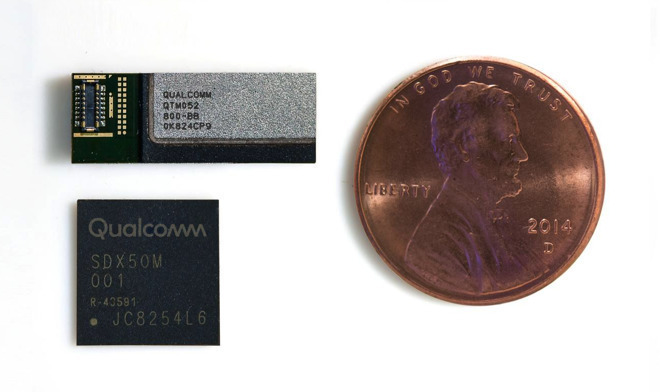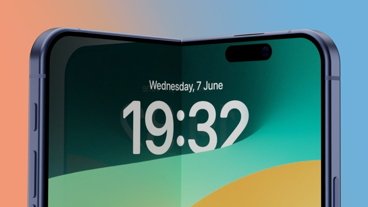Ming-Chi Kuo has released a note to investors suggesting that the 2020 5G "iPhone 12" will support the entire 5G spectrum, including mmWave, despite what other analysts have said.
Ming-Chi Kuo's previous reports had claimed that all four phones would support 5G, but did not go on to specify what type. His latest note goes on to explain that all four models will now support mmWave 5G.
"We believe that Apple will release new iPhones that support mmWave and Sub-6GHz iPhones at the same time in 2H20.Because 5G iPhones are divided into Sub-6GHz and Sub-6GHz + mmWave models, the complexity of new product development is higher, which is also beneficial to Fuzhikang Group of NRE.
According to our latest survey, the development of the Sub-6GHz + mmWave iPhone is progressing as scheduled, and it is expected to ship at the end of 3Q20 or early 4Q20."
JP Morgan and a few others have claimed that only two of the four 5G iPhone 12 models would support mmWave 5G in an earlier note to investors. They had suggested that the devices would be paired off with two offering higher-tier "Pro" style specifications, while the others would have lesser features.
According to JP Morgan, all four will be "driving potential acceleration in replacement cycles." The four will also be offered in the same year as an anticipated release of the second-generation iPhone SE, which is expected to ship with a 4.7-inch LCD display in the first half of 2020.
 Amber Neely
Amber Neely








 Christine McKee
Christine McKee
 Charles Martin
Charles Martin
 Mike Wuerthele
Mike Wuerthele
 Marko Zivkovic
Marko Zivkovic
 Malcolm Owen
Malcolm Owen


 William Gallagher
William Gallagher
-m.jpg)






20 Comments
2020 - the year to upgrade
The alternative suggested JP Morgan and others didn't make a lot of sense anyway. When, in the past, has Apple *ever* split a product line by the level of standard technology it supported? Sure, there have been cases where some phones were faster than others, but that was because of supplier constraints (e.g. Qualcomm modem vs. Intel) - and even then, Apple didn't make the more capable phone a separate model. Heck, if I remember, it actively slowed down the faster version to make everyone's experience similar.
Apple makes separate models by having separate features. It doesn't make separate models by giving one phone an inferior version of the same feature (5G in this case).